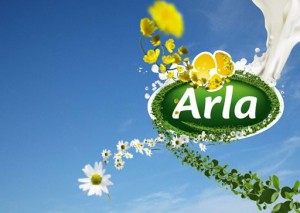Arla Foods Enters New and FReSH Initiative

Arla Foods is teaming up with a number of partners to launch the ‘Food Reform for Sustainability and Health’ (FReSH) programme. It aims to define guidelines on sustainable diets, redefine food production, reshape food consumption and evaluate a sustainable footprint for food transport.
A growing number of people suffer from obesity or malnutrition worldwide, while a large number of people still go hungry. Modern consumers are increasingly interested in health and nutrition and want to consume food in a sustainable way with respect for the environment, the climate and for people.
As a member of the EAT Foundation (EAT), Arla is already participating in work that links food, health and sustainability across science, business, civil society and policy. The EAT Foundation brings stakeholders together to drive a transformation of the global food system.
Today the EAT Foundation (EAT) and the World Business Council for Sustainable Development (WBCSD) together with Arla and other leading global companies, announce the launch of the FReSH programme.
“Consumers are at the heart of all of Arla’s activities and only by responding to their needs closely are we able to provide food, innovative solutions and great inspiration for a healthy everyday life. FReSH brings together business and science to define a future in which everyone can choose to enjoy healthy and affordable food, which is sustainably produced. It is natural for Arla to contribute based on our experience with sustainable dairy production practices and knowledge of the high nutritional value of dairy products,” says Kristian Østerling Eriknauer, vice president of CSR within Arla.
As a global leading food company, Arla has a natural role in fighting and minimising health, socio-economic and environmental challenges throughout the value chain. Its Sustainable Dairy Farming programme sees Arla working closely with its dairy farmer-owners in DK, SE, UK, DE, NL, BE and LUX to improve animal welfare, reduce consumption of water, energy and feed, reduce greenhouse gas emissions and improve biodiversity.
“In Arla, being a responsible business means conducting our activities with respect for global and local, social, environmental and economic challenges. We believe that our commitment to long-term responsibility and sustainability is only achievable in cooperation with others,” adds Kristian Østerling Eriknauer.
The FReSH programme will enable Arla and other reputable companies and institutions, like the Lancet Committee, to influence and develop solutions for food production and consumption globally.
“Achieving complex goals requires all the relevant stakeholders at the table. It is extremely important for Arla to engage in a dialogue about the change we would like to see in the world. That is why we are very pleased to be part of this programme and we believe that together we can make a difference,” says Kristian Østerling Eriknauer.


































